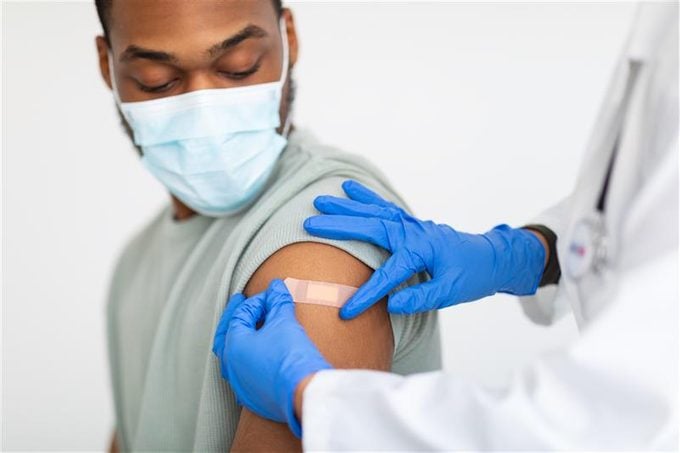As the season ushers in cooler weather and people start spending more time gathering indoors, getting vaccinated is important to help protect against certain respiratory diseases, like COVID-19. We’ve seen hospitalizations associated with COVID-19 rise and fall, but COVID-19 has never gone away.

We’re sure you have questions – it’s okay to be curious! So, if you’re wondering whether you need any vaccines, if you’re eligible or just why you should get one of them, we’ve got some answers, per the CDC.

Respiratory diseases evolve and can affect people in different ways
Some of the viruses that cause respiratory diseases, like the SARS-CoV-2 virus that causes COVID-19, evolve and change. Protection provided by COVID-19 vaccines may decrease over time, so staying up to date on vaccinations is critical in training your immune system to recognize and help fight against recent strains.1
COVID-19 can affect anyone and cause symptoms that can range from mild to very severe. Some people are more likely than others to get very sick with COVID-19, which can lead to severe illness, hospitalization and death. People with certain risk factors are more likely to get very sick with COVID-19 – particularly people over 50 or with certain medical conditions, including being overweight or a smoker, having heart or chronic lung conditions, chronic kidney disease, diabetes or a weakened immune system.2 Approximately 75% of American adults have at least one risk factor3, and according to the CDC, the more risk factors you have, the greater the likelihood of getting very sick with COVID-19.2

Staying up to date on vaccinations is key
Per the CDC’s recommendations, this season’s updated COVID-19 shots are designed to help protect against recent variants and are available in the US to eligible individuals 6 months of age and older.
If you’re still finding yourself asking questions, talk to your healthcare provider. Vaxassist.com is also a valuable resource where you can find information about eligibility, where the vaccine is available in your area and how to schedule an appointment. The CDC says you can get a COVID-19 shot at the same time as your flu shot if you’re due for both. Talk to your doctor or pharmacist to find out if they’re right for you. You may be able to save yourself a trip and get a head start on your holiday prep and planning.
Life looks different in 2023 than it did just a couple of years ago – we’ve shifted away from baking sourdough bread or trying whipped coffee and are back to having packed schedules again. But you still shouldn’t wait for fall and winter virus season to kick in to take action. Get ahead of your to-do list and ask your healthcare provider about scheduling your recommended vaccine appointments today.
References
1. Centers for Disease Control and Prevention. Stay Up to Date with COVID-19 Vaccines. https://www.cdc.gov/coronavirus/2019-ncov/vaccines/stay-up-to-date.html. Last updated September 15, 2023. Accessed on September 29, 2023.
2. Ajufo E, Rao S, Navar AM, Pandey A, Ayers CR, Khera A. U.S. population at increased risk of severe illness from COVID-19. Am J Prev Cardiol. 2021;6:100156. Published correction appears in Am J Prev Cardiol. 2021;6:100195.
3. Centers for Disease Control and Prevention. People with Certain Medical Conditions. https://www.cdc.gov/coronavirus/2019-ncov/need-extra-precautions/people-with-medical-conditions.html. Last updated May 11, 2023. Accessed on September 29, 2023.
